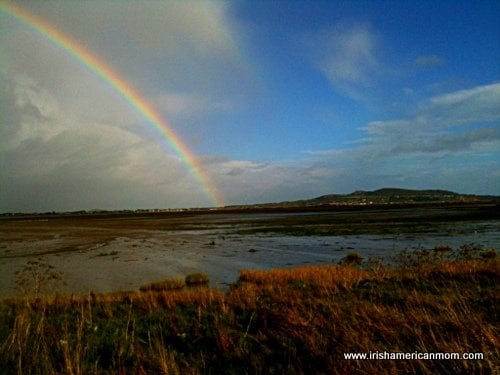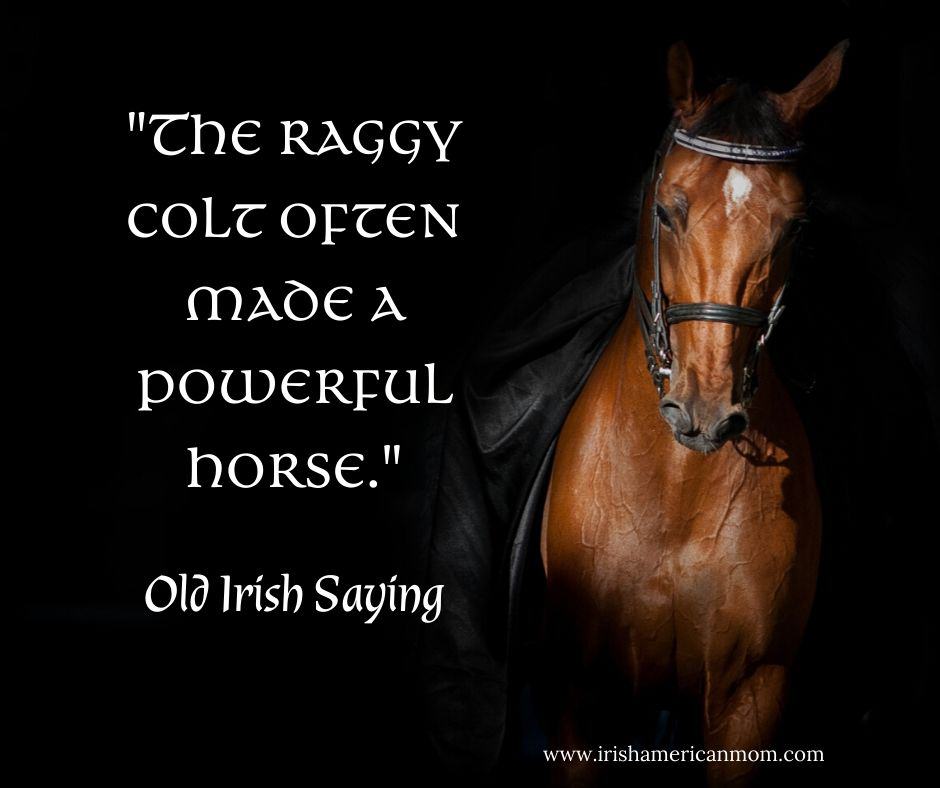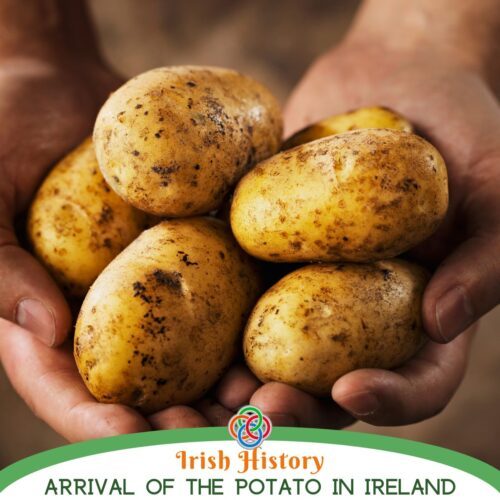In small rural Irish villages the term 'blow-in' is often used to classify anyone not born in the immediate surrounding locality.
In other words a blow-in is a person who has relocated to an area, who has no roots there.

Table of Contents
Irish Terminology or Slang
Using Irish terminology I am a 'blow-in' to Kentucky. In fact I've been a 'blow-in' to New York, New Jersey, Florida and Texas.
Now, you can become a 'blow-in' by marriage, and trust me it may take many years, even until you reach your Golden Anniversary, to lose this seemingly not-so-honorary title.
You may have been born less than thirty miles down the road from your new abode, but for all intensive purposes you are still a 'blow-in'.
Definition Of A Blow-in
The geographical lines used to define 'blow-in' status are mysterious, and cannot be aligned to any contour line or marking on a topographical map.
Only the locals of each and every village know who qualifies or who doesn't qualify as a 'blow-in', but here are some of the eligibility requirements I am aware of ....
You might be a blow-in if ....
- you were not educated in the local schoolhouse;
- you cannot name every hill and townland within a five mile radius of your new home;
- you don't hail from a long line of ancestors with deep rooted ties to the locality;
- the intonations of your accent are not in perfect sync with the linguistic pathos of the locals;
- you do not roll your "RRRR's" with the exact same vibrations the local accent requires.

Family Ties
The people of County Cork where my forebears hail from, love to use the term 'blow-in'.
They have grown very accustomed to 'blow-ins' over the years, from Spanish sailors whose ships washed ashore during the Spanish Armada debacle of 1588, to colorful hippies arriving in West Cork.
Today's County Cork blow-ins are creative thinkers, land-lovers, entrepreneurs, farmers, and ocean lovers. Blow-ins settle in Cork from all corners of the world, but especially from Germany, The Netherlands, America, England and Scotland.
I often wonder if these new settlers grow alarmed upon first hearing the term 'blow-in'.
Despite my Cork ancestry, I'm well aware that if I chose to return there to live, then I would be a 'blow-in'.

Now you may hail from a long line of ancestors born and reared in an Irish locality many years ago, causing you to assume you are an honorary local.
Alack and alas, you are still a 'blow-in'. If your ancestors emigrated to another corner of the world to make their fortune, then upon your return to their native soil, you are still none other than a 'blow-in'.
Flattering Or Unflattering Title
Now don't grow disheartened. This term is not as derogatory as it may seem upon first hearing.
Believe it or not, you may even be called a 'blow-in' to your face. It is a very acceptable term for every day conversation.
Being a 'blow-in' does not signify you are not welcome, even though to most who do not understand the nuances of Irish life and speech, this term may appear very insulting.
In fact when calling someone a 'blow-in', locals may simply be letting you know they recognize you are new to the area, and they are ready and willing to help in any way they can.
Some Irish people even introduce themselves as a 'blow-in'. A Kerry woman settled in Cork will always tell you she is a 'blow-in' to the Rebel County.
Perhaps, acceptance of this title is a way of letting locals know one's home county will never be forgotten.

I often wonder if newcomers to Ireland feel welcome, or do they always feel like outsiders, who "aren't from around here."
Did the term 'blow-in' evolve from our medieval, clannish Irish ways?
Is it a reflection of our Irish pride, especially pride in our place of origin?
Have you ever been called a 'blow-in'?
I don't know the answers to these questions, but please feel free to join this light-hearted conversation in the comments section below.
On Being A Blow-in To America ...
Wherever the winds of change have blown me across America, the people of my adopted states of Kentucky, Texas, Florida, New Jersey and New York always made me feel welcome. Thank you from the bottom of my heart for adopting this Irish 'blow-in'.
And so today I salute 'blow-ins' everywhere. I hope you feel welcome in your new homes and honored for the diversity you bring to your communities.

Slán agus beannacht,
(Goodbye and blessings)
Mairéad -Irish American Mom
Pronunciation - slawn ah-gus ban-ock-th
Mairéad - rhymes with parade
If you enjoyed this collection of blessings and sayings from Ireland, here are some more you may enjoy....
Irish Wisdom and Sayings About Horses

















Veronica Leigh Vatter
I moved from Georgia to Pennsylvania 20 years ago at age 8. I'm still not "from around here". Oh, if only I had a quarter for every time I've heard that! funny how you can be from the same country, speak the same language, and still be an outsider. Oh well, rock your heritage like a badge of honor! 🙂
Irish American Mom
Hi Veronica - Many Irish settled in Pennsylvania, so they probably brought with them from Ireland their notions of "blow-ins" and "not being from around here." I love how you say "rock your heritage like a badge of honor" - that's great. I'll remember your words if I ever feel a little different anywhere I may roam.
All the best,
Mairéad
Claire Fullerton
As an American of Scots-Irish ancestry on both sides, I was a blow-in in Connemara. I was immediately embraced, but I will say it was only after I answered the answered, "Have you any Irish connections?"
Irish American Mom
Claire - In Ireland you definitely have to wear your Irish connections like a badge of honor to feel that true Irish embrace and the famous hundred thousand welcomes. Deep within our Irish psyche there is a need to feel our connectedness through our heritage. It is a difficult thing to explain, but hopefully by these little blog discussions about seemingly trivial Irish expressions and nuances, we may discover some of the origins of our Irish ways. Thanks so much for sharing your Irish experiences.
Best wishes,
Mairéad
Ray Brown
Dear Mairead,
Well, from one "blow in" to another, I really enjoyed this wonderful report from you. I had never heard this term before, and I now know that this applies to me even though my dad's mother was from Cork and she married a man from Derry in San Francisco, California, who was my grandfather. I thought I was Irish for life as all my family on my mother's side is Irish too. I laughed at this and then I thought, maybe it is a way, originally, to protect the Irish from the original usupers of Mother Ireland. If an Irish person had a pig, and the Brits rode by, you had to hide it in the house or it often would be confiscated, hence the British had their private joke that we were "as Irish as Paddy's pig", equating pigs as our family members when we had to hide the pigs or they would be taken away. Another thing, maybe it was a protection for the Irish, originally, because when the Irish had enough, and they wanted to rebel, there were often spys, paid by the Brits, who would tell on the Irish. Consequently, who best could you have faith in, but the ones living in your village..
This term equates to me in a different way. We own a house in Mexico, and when I first came to this area of Mexico, and they heard my accent in Spanish, and said, matter of factly, "You are a gringo", I was very offended at first , because we whites in the states were always told this was derogatory, but Mexicans said no, this is not negative, it only means you are from the states. Now, in Mexico, when the people hear my accent and ask me where I am from I say, I am a gringo. ( I think the term has changed, like maybe the Irish term. I had a professor, in the University that said that there are different explanations for the word "gringo". One explanation was that , when the Americans attacked Mexico, taking over so much land, the people learned the word "go" and mistook the word blue eyes for green, thus green-go, or gringo. Now that word, in Mexico, has no bad connotation, or at least depending on how it is used.
Mairead, it was great to hear a new story of words for us in Ireland, and I hope this also can explain a word in Mexico that now has an entirely different meaning depending on how it is used. Thank you so much for teaching me about Mother Ireland. Maybe the Irish term first was a warning to other Irish, but also has changed over the years too.
Ray Brown
Mairead,
The Irish here in America, who have been here for many years or generations, changed a painful saying into a proud saying. Many do not know, now, where the term," I'm as Irish as Paddy's pig" came from , but they use it proudly for the meaning, "I am very proud to be Irish." I think, originally, when the Irish came here and heard it, they wanted to diffuse the pain, and turned it around to have a positive meaning as the blacks did with a painful word for them. Later, the term only took on pride in this country, but it is still fighting words in Ireland. The more you use a word or set of words, it can often take on a far different meaning then before..
Irish American Mom
Ray - It's amazing how sayings can evolve over time, and it's lovely to know that an insult has been turned around over the years. Thanks again for more insight into all things Irish American.
Best wishes,
Mairéad
Irish American Mom
Hi Ray - I did not realize the meaning of the word "gringo" is dependent upon how it is used in Mexico. Your story and explanation are very interesting. History and social evolution is simply fascinating to me, and I love learning about how some of today's norms and sayings developed over time.
All the best,
Mairéad
Barbara
How timely is this post for me. On May 30th, 50 years ago, I became a blow-in to California ( from Canada ) . Thanks so much for this information.
Irish American Mom
Hi Barbara - We've blown-in from all over the world to the United States. Happy 50th Californian Anniversary to you at the end of the month. Here's to many more happy years as a blow-in living in sunny California.
All the best,
Mairéad
Ray Brown
Dear Mairead,
I enjoyed reading about Veronica and Claire's experiences as "blow ins". It reminded me of an experience my brother and I had together the first time we were in Ireland in 1981 together. We got lost in a Gaehacht area, or the Irish speaking area of Ireland. It was in a very remote area, and all the signs were in 100% Irish, and our Irish map had only labels in English. This was before navigation in cars and it was a very isolated area. Finally, we saw two guys that were about 85 years old walking down the dirt road. We told them are predicament and asked them how to get to the place we wanted to go. They looked at us with long hard stares, trying to read through us. Finally, one of the gents said something like, "Now are ye English by any chance?" ( The blow in was coming.) My brother laughed and said, "I'm going to forgive you for that remark, no we are Irish Americans." I quickly interjected that we were Catholic too", and then I threw in the whole kitchen sink and said we even have a nun and priest in our family and the priest was a fluent Irish speaker. Well, at that point, the smile came to their face and they preceeded to explain the way to get back. I guess at that moment, for a second, we ceased to be blow ins. We laughed driving down the winding dirt road and I said to my brother with great laughter, " I bet we would get very different information if we were British." My brother laughed, and he agreed. At that moment in time we graduated out of being "blow ins", because they gave us the correct information.
Irish American Mom
Hi Ray - I love this story. You had to be sized up by the locals to determine how helpful they would be - sounds like a very Irish thing to do.
All the best,
Mairéad
brian@irelandfavorites
Hi Mairead, The worlds a funny place. I bet a blow in from Ireland is probably accepted better than one from Tennessee. The U.S has its squabbling sibling states, in Maine and New Hampshire they have a lovely name for people from Massachusetts not as complimentary as blow in, but put them in a room with some of our fellow citizens from Alabama and we're all Yanks. Now in Ireland being a yank isn't nearly as bad, probably just this side of being a blow in. I like the locals being in control, having the unwritten rules of what it means to belong to their part of the world matter, and the sooner the blow ins figure it out the better, ha!
Mairead you've seen too many Derbies to be anything but a Kentuckian with some lovely connections,
Cheers,
Brian.
Irish American Mom
Hi Brian - In Ireland anyone from America is deemed to be a 'Yank', no matter what side of the Mason-Dixon line they hail from. It could even be considered a term of endearment in Ireland, except when used by the Bull McCabe in 'The Field'. I know it is not always used in a complimentary way in the U.S..
And I'm glad to hear that after 25 years I am no longer a 'blow-in' in America or Kentucky.
All the best,
Mairéad
Penny
We moved to the Northern Neck on Virginia. A Penninsula between the Potomac River and the Rappahanock Rivers. We were immediately tagged as "come here's". Natives are "from here's". Ran into a man who said he was neither. He was a "brung here", brought here by marriage.
Love the term "blow in". What would be the Irish equivalent to "from here"?
Irish American Mom
Hi Penny - Thanks so much for checking out this little ramble about being a "blow-in". You got me thinking about what the term for "from here" would be in Ireland. I think most people would say they are a local, or perhaps someone might describe a neighbor as "one of our own".
All the best,
Mairéad
Kathryn Guare
Hi Mairead, I'm new to your site and can't wait to dig in to all its nooks and crannies! I'm a Vermonter of Irish ancestry (Clare). Here in my mountainous home state, the colorful term often applied to non-natives is "flatlander." It's usually meant to be playful - but, if someone from the big city moves in and immediately starts petitioning for relief from the pungent smells of their neighbor's farm, it will be used a bit more derisively!
Irish American Mom
Hi Kathryn - Thanks so much for checking out this post and adding the Vermont twist to this little saga. "Flatlanders" is such a descriptive term. Coming from Ireland I know all about the pungent agricultural smells of farming, and I'm quite certain many visitors to the Emerald Isle are quite shocked by the olfactory experience of touring Ireland.
Thanks for leaving the link for your website. Your books look intriguing. I read your biography and your love of India and Ireland struck a chord with me. Many years ago I spent some time in India working with children with polio. India has left an indelible mark on my soul - I loved it there; the country; the people and their warm welcome. Anyway, thanks for stopping by. Whenever you need a little Irish pick-me-up and have a moment, please do stop by and check out my ramblings.
All the best,
Mairéad
Kathryn Guare
I had much the same reaction to India as you, Mairead, and I'm always looking for another excuse to go again. I'd say the only country that's left a more indelible mark on my soul is Ireland! 🙂
Maria Guare
Hi Kathryn, my name is Maria and I was hoping to talk to you about your family. I recently found out that my family has ties from Ireland and started looking into the Guare name. Could I talk to you more about it? M
Irish American Mom
Hi Maria - Thanks for stopping by my blog. This post was written as a guest post by Kathryn so she may not see this comment since it was a few years since this post was published. She does have her own website, and you might be able to contact her directly there. Here is the link ...
https://kathrynguare.com/
All the best,
Mairéad
(Irish American Mom)
Sean Conley
Ye forgot to mention what "swallows" are, which are annual blow-ins. I was talking to my grandfather's cousin a couple of years ago outside Clon and he was on about these fishermen swallows from bantry to clon. This would be back in the 1930s and going way back. Anyways, they had some small houses that they lived in temporaliy when the fish were in the area. So, he goes on with his story of having dinner with these fishermen and said, they did not eat with cutlerly and adds "Sure there were fingers before there were forks, Boy" in his West Cork way.
Irish American Mom
Hi Sean - Thanks for sharing your story about the fishermen swallows in West Cork. I can just hear his accent. My mother is from Skibbereen so I know that accent well. In Florida, they call their annual visitors from the colder northern states "snowbirds." It's similar to the Irish expression of swallows for annual blow-ins.
Thanks so much for stopping by to check out this little ramble and trip down memory lane.
All the best,
Mairéad
Roberto
Thanks Irish American mum, I'm indeed a blow-in foreigner living where your ancestors live in Cork
Irish American Mom
Hi Roberto - I hope you feel welcome in your adopted county. Can't wait to get to see Cork again.
All the best,
Mairéad